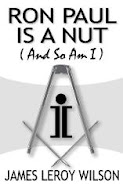Roderick Long explores the problem of a war fought on both just and unjust grounds.
Exmaples: "[I]n the war of 1812 the United States arguably had both a just aim (resisting British impressments of American citizens at sea) and an unjust aim (a land grab in Canada); likewise in the U.S. Civil War the Confederacy had both a just aim (resisting tariffs and centralised power) and an unjust aim (preserving and extending slavery)."
I'm not sure about the second example. Slavery, resisting tariffs, and decentralizing power may have been aims of secession, but the war from the Southern perspective was clearly just in that it was defensive.
Other than that, Long makes a good contribution to Just War theory. Still, I can't conceive how a war can have a "just aim," that it not fundamentally defensive. Thus, all other motives are rendered superfluous.
Say I shoot a burglar, who is a person I recognize, know well, and never liked. The fact that I don't like him doesn't justify me shooting him, but that he's invaded my house does justify the shooting and renders the fact that I don't like him superfluous.
James Leroy Wilson's one-man magazine.
Sunday, August 14, 2005
Subscribe to:
Post Comments (Atom)




Still, I can't conceive how a war can have a "just aim," that it not fundamentally defensive. Thus, all other motives are rendered superfluous.
ReplyDeleteYep! I strongly agree with that statement.
As for the Civil War... Didn't the Confederacy commit the first act of war by shelling Fort Sumpter? Actually, it would have been the Confederate firing on the Navel resupply ship a few days before they shelled the fort.
That was after Lincoln refused to me with CSA ambassadors to negotiate the purchase of federal property on CSA soil.
ReplyDelete